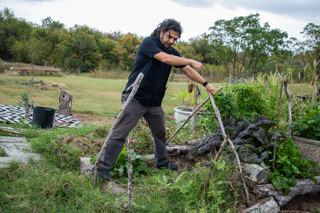By Elyssa Whaley/ne news editor
Addiction can be described as that dark scary place where balance and moderation are forgotten, and boundaries do not exist.
Some believe addiction is a disease, and others think it is a choice. TR counselor Jeronimo Aviles said research has shown physiological relationships to addiction.
NE counselor Condoa Parrent disagrees.
“You can be predisposed, but I’m a big believer in ‘We are who we are, and we choose what we become,’” she said.
She doesn’t believe addiction is a disease, but the environment contributes more to addiction than genetics.
Anyone can develop an addiction, but Parrent said, “I think some of them are free-spirited people, cheery and loving. They may feel a lack of self-confidence and have a need to fit in.”
When it does come to the genetic factor of addiction, NW counselor Connie Alexander said neurotransmitters not making the right connection to the brain could affect judgment and impulse control.
“Essentially, the pleasure centers of the brain are affected in addiction,” She said. “You find yourself with a bag of new clothes you can’t afford, a hangover when you weren’t going for a drink or a gambling debt you don’t recall. It is not a moral issue. Loss of control is just that — loss of control of your decision-making abilities concerning addictive activities.”
Aviles said addiction itself has two components: physiological and psychological. Not everybody who abuses a substance becomes addicted in a physiological perspective.
“Some people can use a substance socially or experiment and never try it again. It’s still abusive if it affects their relations and areas of responsibility,” TR counselor Mandy Melton said.
The pressures of responsibility for students can push them to look for outlets for stress relief.
“What seems like a night of fun can end badly if you are brought into court and that wonderful future you are working for may be closed to you forever. Think!” Alexander said.
She said addiction is a thing that can’t be controlled because the brain doesn’t say stop any more.
“It is a life change,” Alexander said. “If you had a life-threatening allergy to shellfish, would you wait a year and decide since you hadn’t had an allergic reaction, even though you haven’t been eating shellfish, is it OK to try it again?”
Rehabilitation or recovery can consist of different approaches, which depend on the person and the addiction. Aviles said a combination of cognitive therapy and a good support network are needed to make recovery successful.
“Not every addiction can be treated the same,” Aviles said. “For example, you can go through withdrawals yourself for certain types of drugs, but with others, you need to be monitored because withdrawals could be life-threatening. Alcohol is very dangerous to try and withdraw yourself because you could die.”
Having the right support network is extremely important, and sometimes family is not always the best network to help in that process.
“Family members play different roles for different people,” Parrent said. “Family can be your biggest support system and your worst if they are not clean or supportive.”
Recovery has many factors, and knowing how the environment and habits affect addiction is important.
“People should be aware of their triggers,” Aviles said. “Know that your biggest issue in life is not falling down but what you will do once you’re down. And if you need help, call for backup.”
Alexander was traveling through Guatemala one summer. While on a bus, she saw a symbol for Alcoholics Anonymous.
“People can always find help anywhere,” she said.
To start the recovery process, Aviles said people need three things.
“The first thing is hope. The second thing is self-worth,” he said. “Never stop being you. You still have self-worth, and forgiveness to yourself and accepting responsibility is a powerful tool.”






















